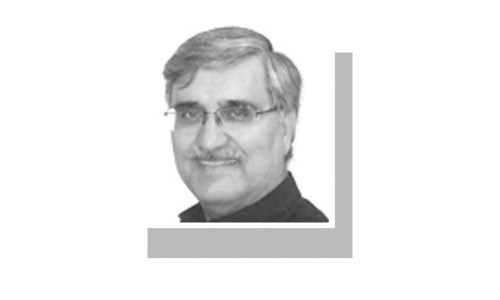It must be hard for politicians in Punjab to quietly digest the sunk cost of the pricey PTI Punjab assembly ticket they acquired a few months back. For them, it escalated further, the already high cost of contesting in the 2023 elections.
When reached to share the running ticket rates, both PPP and PML-N leaders insisted that their party tickets are not for sale. “They are granted by the party to the deserving candidates free of charge,” said a sitting member national assembly (MNA), also a member of the Public Accounts Committee of the parliament.
He was, however, not the alone dishonest outlier. Many first-rank leaders approached either ignored the query in this regard or chose to take a similar position. Those who responded did not wish to be quoted.
Still more surprising was the response of the Election Commission of Pakistan (ECP), the body vested with the responsibility of holding free and fair elections in the country. Qurat ul Ain Fatima, the spokesperson of ECP, shared some information regarding parties and their status of filing accounts but said, and I quote, “The parties do not disclose generation of funds by sale of tickets.”
The financial transparency of the election business is crucial to improve the quality of democracy
Ahmed Bilal Mehboob, founding president of the Pakistan Institute of legislative development and Transparency (Pildat), explained why the ECP took the misinformed position and what inspired incorrect statements of politicians. He also linked this to the general high-pitched debate on corruption and the lack of progress in the sphere.
“Our entire political and electoral system is generally very casual about ‘political finance’. Political parties, individual candidates and legislators fail to submit the statements of accounts in time every year. Their statements are casually prepared, and the required details are often missing. Party heads seldom carefully review the party’s financial statements. The ECP also doesn’t scrutinise these documents except when there is a complaint or a court case. As long as their unintentional or willful casualness persists, our political finance will not be able to stem the tide of political corruption”.
He was generous in sharing findings on the subject besides sending copies of the relevant portions of PML-N and PPP statements of income and expenses accounts for FY18, published in The Gazette of Pakistan, Extra, November 16, 2018. The statements of both parties show election fees as one of the sources of income in black and white.
According to the ECP, currently, 168 political parties are enlisted, but only 10 parties have submitted financial accounts for 2022-23 — the last date for filing the statement of accounts is August 29
The work based on the material collected and released by the ECP and Pildat found: “The PTI collected Rs124 million and Rs335m in the general election years 2013 and 2018 respectively under the head of ‘Election ticket fee’. This income constitutes 11.7 per cent and 56.2pc of their total income for the respective years. The PTI boycotted the 2008 elections, so no ticket fee was shown that year in their accounts statement.
“The PML-N collected Rs15m (85.6pc), Rs0.77m (0.1pc) and Rs120m (95pc) in elections 2008, 2013 and 2018. The PPP collected Rs184m (84.81pc) and 95m (89.41pc) in election years 2013 and 2018. No figures given for 2008.”
When confronted with facts, a federal minister said, “My head is a little hazy; let me reconfirm and get back.” Nothing came from him till the filing of this report.
Earlier in 2023, when former prime minister Imran Khan was riding high on the wave of popularity, provincial legislative seat aspirants in Punjab juggled for tickets, loosening their purse strings, and bidding a winning price for a PTI ticket.
Why Punjab elections were deferred is another story, not in focus here. Punjab elections, however, will now be held with the general elections, hopefully sometime later in the year.
The dramatic changes in the political scene, however, forced readjustments in the positioning of the majority of the former PTI ticket holders. There is no legal bar on them to use their party ticket whenever elections are held, but many might not want to avail it for obvious reasons.
The initial race for the provincial assembly tickets started in January 2023, soon after the dissolution of the Punjab assembly. A PTI ticket, at that point, was perceived to be a guarantee for a clean sweep in elections. It held a promise to open doors for a future in politics in the biggest province.
According to unsubstantiated reports, people paid tens of millions to secure a PTI Punjab Assembly ticket back then. As the election business in Pakistan is cash-based, any verifiable data is hard to get by. It is, therefore, impossible to quantify in definite numbers the scale of the sunk cost of a sizeable community of politicians in Punjab in an election year in Pakistan, even before the actual exercise starts.
The financial transparency of the election business is crucial to improve the quality of democracy. It tends to empower citizens to make more informed decisions on the ballot.
According to the ECP, currently, 168 political parties are enlisted, but only 10 parties have submitted financial accounts for 2022-23. The last date for filing the statement of accounts with the ECP is August 29. As per Section 61 of the Elections Act 2017, the nomination fee for the National seat is Rs30,000 and Provincial Assembly seat is Rs20,000.
Published in Dawn, The Business and Finance Weekly, July 24th, 2023














































Dear visitor, the comments section is undergoing an overhaul and will return soon.